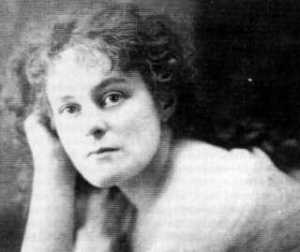…the Diamond Jubilee of the reign of Queen Victoria, 78, is celebrated.
In London, before her procession through the streets begins, the monarch visits the central Telegraph Office to send a message to her subjects across her empire.
Siblings Virginia, 15, Vanessa, 18, and Thoby Stephen, 16, watch the parade from the window of the hospital where they are visiting their half-sister who is ill.
But in at least one part of the Empire, Dublin, Ireland, there are organized protests.
Poet William Butler Yeats, just turned 32, is there with his much beloved Maud Gonne, 30, political activist. She has been involved in the resistance to celebrating the ‘Famine Queen’s’—as Gonne calls her—60 years on the throne.
At the National Club in Rutland Square, Yeats has the doors locked to keep Gonne inside until she can explain to him what she is going to do. ‘How do I know until I get out?!’ Gonne asks.
The Irish La Pasionaria races out into the square and delivers a memorable speech demanding, ‘Must the graves of our dead go undecorated because Victoria has her Jubilee?’ Riots ensue.
That evening, Yeats goes to the local newspaper to tell them that he had done his best to keep her inside. He later writes that Gonne ‘was very indignant at my interference. I refused to let her leave the National Club. She showed magnificent courage thru the whole thing…She is now the idol of the mob and deserves to be’
The next day, Gonne leaves to recuperate in France; Yeats heads off to travel through the north and west of Ireland with friends.
This year, we’ll be telling stories about these groups of ‘such friends,’ before, during and after their times together.




